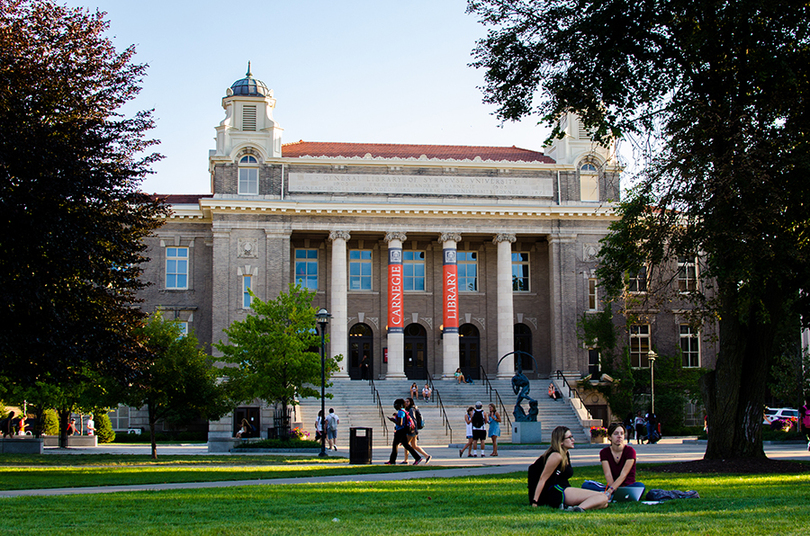Syracuse University admission officers connected to Chinese firm accused of application fraud

Reuters investigation found SU is among a list of United States universities whose admissions officers attended in a conference led by a Chinese firm accused of committing fraud in the application process. Kiran Ramsey | Digital Design Editor
The head of Syracuse University’s admissions office declined to say whether admission officers participated in a conference organized by a Chinese education firm accused of committing fraud in the college application process and paying thousands of dollars to admission officers at the conference.
Reuters reported this month that Robert Clagett, a consultant at the Shanghai-based education company Dipont Education Management Group, identified admissions officers from SU as having taken part in an eight-day admissions workshop held every July by the company. According to the Reuters report, the company has paid admission officers either business-class airfare or a combination of economy-class travel and $4,500 per workshop attendee as an “honorarium” in cash.
Maurice Harris, dean of admissions at SU, did not answer questions via email from The Daily Orange about whether SU admission officers participated in the workshop and, if they did, how many individuals from the office have participated in the conference. The dean also did not answer whether financial compensation was given to SU admission officers.
In 2016 alone, admission officers from the University of Rochester, the University of Vermont and Carleton College accepted the honorarium, according to the report, which does not stipulate whether SU officials did the same.
Former employees of Dipont also accused the company of actively supporting students cheating on their college applications. Several former anonymous employees told Reuters that Dipont employees wrote essays on behalf of students, expunged bad grades and manipulated letters of recommendations. The company has denied the allegations.
Harris said in an email that the Office of Admissions is confident of the integrity of the application process.
“We are aware of the potential for fraudulent application credentials from some international locations,” Harris said. “We have in place procedures and protocols to ensure and validate the accuracy and authenticity of all applications. This includes a multi-person international admissions committee that evaluates and makes recommendations on applications.”
Nearly 1 million students from foreign countries enrolled in United States universities between 2014 and 2015, with students from China making up 31.2 percent of those students — the most of any country, according to the Institute of International Education. To meet the increasing demand of students applying to study in the U.S., multiple firms were established in China that charge expensive fees for helping students gain admission, sometimes in an unethical manner, according to the report.
In addition to SU, Clagett listed in the report that admission officers from Claremont McKenna College, Texas Christian University, Wesleyan University and others have attended the workshop. Chinese students who are eager to study in the U.S. participate in the workshops to learn application strategies firsthand from admissions officers, according to the report.
The company has invited admissions officers from the U.S. for the summer workshop since 2014 to give personal advice to students on the college application process. It also stresses its ties with U.S. colleges such as the University of Virginia, Wellesley College and Vanderbilt University.




